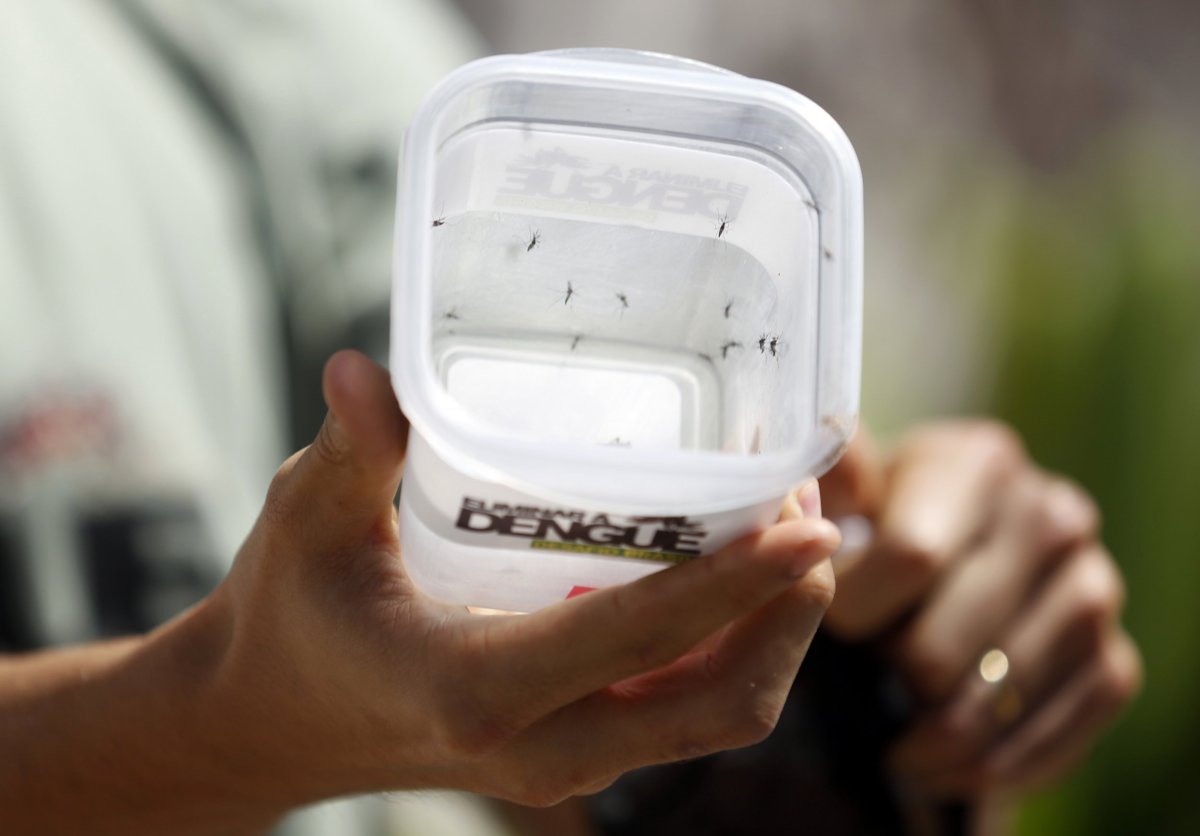Australian researchers from Monash University in Melbourne embraced a seemingly counterintuitive approach when they set out to eliminate dengue, a disease spread by mosquitoes, typically found in tropical and sub-tropical areas: They released even more mosquitoes.
Published Wednesday in Gates Open Research, the study set out to eliminate dengue from Townsville, Australia. The team, led by Scott O'Neill at Monash, released mosquitoes infected with bacteria to help fight the disease.
Dengue is typically found in urban and semi-urban areas. According to the World Health Organization, 40 percent of the world is at risk of contracting dengue, and it's regularly found in over 100 countries.
Dengue can cause flu-like symptoms, such as high fever, headache, muscle pains and pain behind the eyes. It can also lead to hemorrhagic fever, severe vomiting, bleeding gums and death. In areas where effective treatment isn't available, the fatality rate for severe dengue can be as high as 20 percent, and 25,000 people die from it each year.
The scientists infected mosquitoes that are able to carry dengue with Wolbachia. Wolbachia is a naturally occurring bacteria that's able to stop mosquitoes from spreading dengue. Wolbachia won't harm humans, the environment or animals. In fact, 11 different countries have been using Wolbachia to infect mosquitoes in hopes they will prevent dengue. Many of the countries, which include Vietnam, Brazil and Indonesia, have stronger transmission rates of dengue than Australia, but the scientists still have high hopes from these results.
Scientists think that Wolbachia can help limit dengue transmission by making it harder for the virus to gain the nutrients it needs from the cells in the mosquito, as well as helping the mosquito's immune system to become resistant to dengue. When mosquitoes with Wolbachia are released, they breed with wild mosquitoes until over time, more mosquitoes are protected from dengue than not.
With assistance from the community, the team released approximately 4 million Wolbachia-infected mosquitoes into the community over 28 months and found that no more dengue existed in the area.

Gaining permission from the public to release these mosquitoes has been a struggle in other communities, so these scientists chose to raise awareness about the program, conduct surveys that measured awareness and acceptance, created an issue-management system where the community could ask questions and raise concerns, and created a group of community members who would review the activities of the scientists. The group included representatives from the city council, the local indigenous community, a health care group, businesses and more.
The study is still awaiting peer review but could be a model for future dengue eradication efforts, as well as efforts to stop the spread of other diseases, as Wolbachia could potentially be used to stop the spread of Zika and chikungunya viruses.
Uncommon Knowledge
Newsweek is committed to challenging conventional wisdom and finding connections in the search for common ground.
Newsweek is committed to challenging conventional wisdom and finding connections in the search for common ground.
About the writer
To read how Newsweek uses AI as a newsroom tool, Click here.








